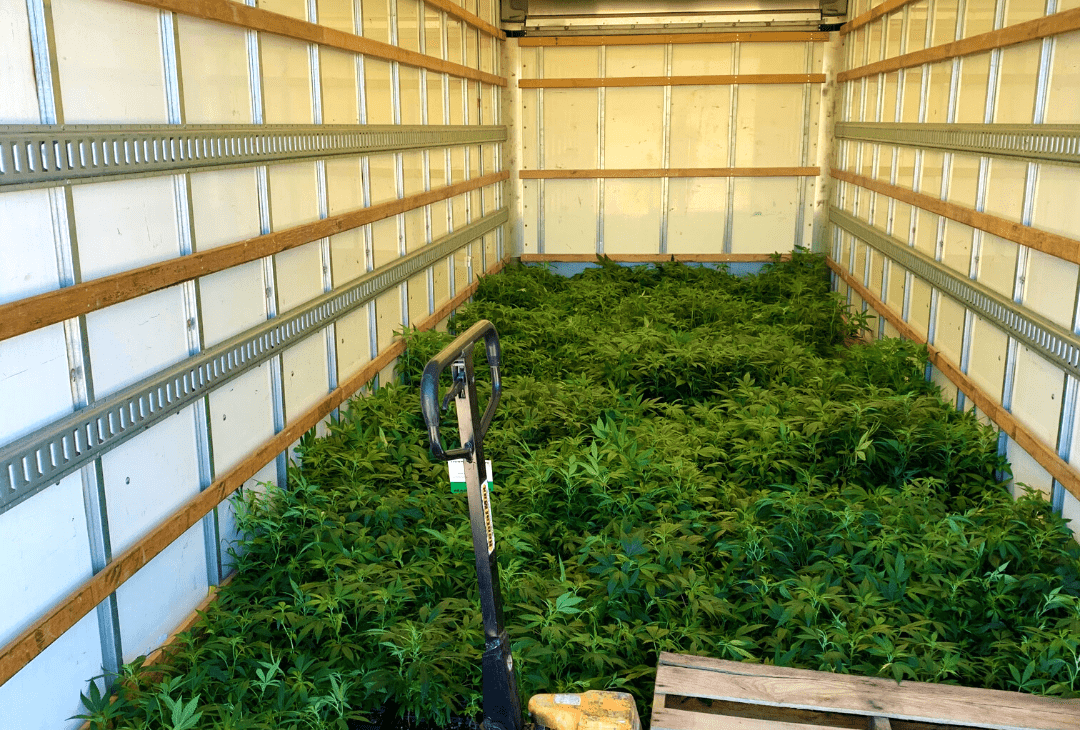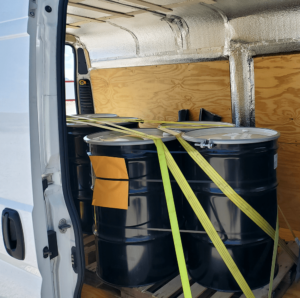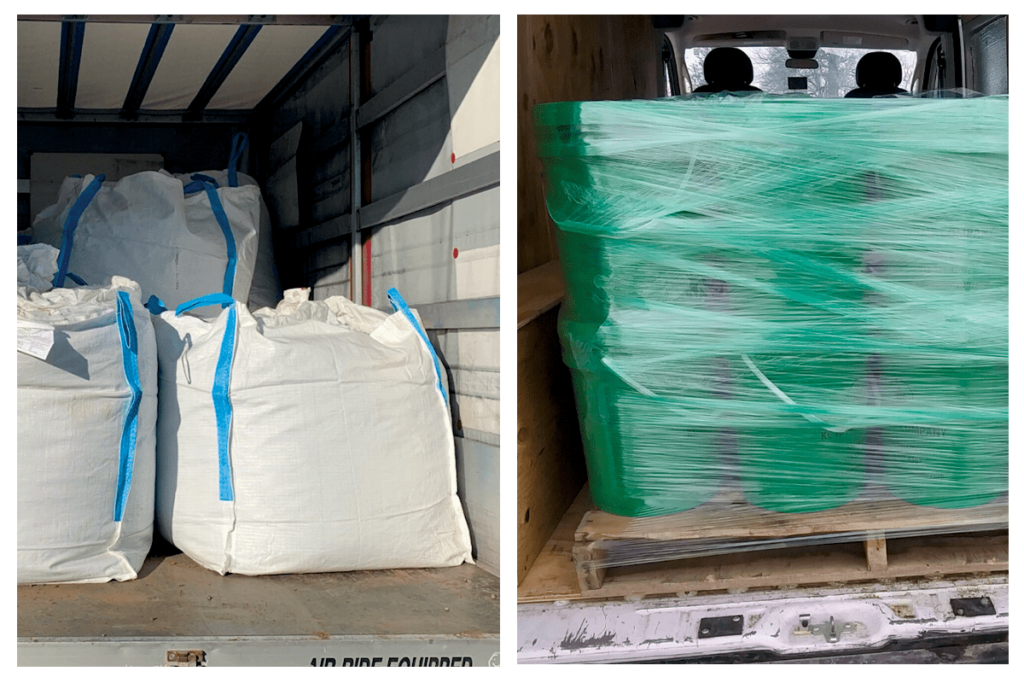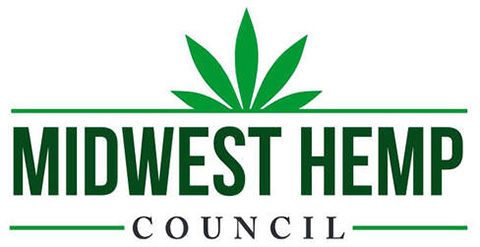
After decades of prohibition, the modern legal hemp industry is still in its infancy. Along with figuring out best practices for growing, harvesting, and processing the plant, the hemp sector is also navigating how best to transport the production generated by hemp farmers and processors.
The U.S. Department of Agriculture’s (USDA) Interim Final Rule (IFR) on hemp production, issued in late 2019, makes clear that the 2018 Farm Bill allows for the interstate transportation of hemp in the U.S. The IFR states specifically, “no state or Indian Tribe may prohibit the transportation or shipment of hemp.” Nevertheless, there have been several cases in numerous states where legal and properly-documented hemp shipments were stopped and in some cases seized by law enforcement, who claimed the vehicles were transporting marijuana.
This article lays out some of the considerations and precautions being taken by a hemp transport company currently serving clients across the U.S. In our upcoming Hemp Benchmarks Spot Price Index report for June, to be published later this month, we will provide detailed information on shipping rates for hemp biomass and other products, broken out by vehicle type and distance.
The New Hemp Transport Industry
Given the intense scrutiny to which hemp cargoes can be subjected, a new and specialized group of hemp transportation experts have been working to ensure the safe, legal, and reliable shipment of hemp. Jon and Zach Wilcox are cousins who co-founded Michigan-based Fide Freight around two years ago. The company has been hauling hemp and hemp products across the country for the past nine months. They have discovered that hemp has some unique challenges when it comes to shipping and transportation.
“When you’re transporting general goods you don’t have to worry about weigh stations, or worry about people mistaking the product as being legal or illegal,” Jon told Hemp Benchmarks. “And a lot of the time you don’t have to worry about the carrier rejecting the load. A lot of people don’t understand difference between legal, compliant hemp and [high-THC] cannabis, since they look and smell the same.” That confusion, he said, created situations in the past where a trucker contracted to haul a cargo of hemp would show up and then refuse to transport the load, fearing they would end up being prosecuted for trafficking marijuana.
The Power of Proper Paperwork
The Wilcoxes say due diligence on their part ensures their hemp cargoes arrive at their destinations on time and without incident. “A majority of our time goes into compliance,” said Zach, “collecting a COA [certificate of analysis] from a customer. We also collect an agricultural license, a processor license, distributor license, some type of hemp license. Then we build a specialized bill of lading that lays out the commodity, the sample numbers and the specifics of the shipment. We have a proprietary process. It takes a lot more time but we have the docs.”
“Not only do we follow the 2018 Farm Bill [regulations],” added Jon, “but we have the customers fill out extra documents, [including] a letter of acknowledgement that says they understand what the consequences are if they’re not shipping industrial hemp.”
The company has attorneys on standby for potential legal issues and company staff available 24/7 for possible emergencies. While there have been instances when their trucks were pulled over by law enforcement to validate their documents, “in over 3 million pounds [of hemp shipped] and 1,000 shipments we’ve never had anything confiscated,” said Zach.
Doing the Homework

Due to a combination of experience and research the company has also learned the least-disruptive routes for their hemp shipments. For example, Jon said, the company gives their drivers specific itineraries to follow when it comes to hemp shipments. These routes direct drivers to weigh stations where Department of Transportation (DOT) staff are more informed about hemp and are more familiar with its paperwork, instead of to sites where DOT personnel might pull over the trucks due to a strong cannabis smell.
Adding to such challenges, shipping hemp is an endeavor that spans from coast to coast. The Wilcoxes say a lot of the hemp they ship originates in Oregon, although Zach said they have noticed that hemp shipments from North Carolina are “starting to pick up a little bit; they have a good hemp program.” Most hemp is being shipped from those farms near the coasts to processing facilities in the Denver metro area.
Fide Freight has also developed a group of dependable, knowledgeable carriers and drivers, who are not fazed by their hemp cargoes. “We’re trying to reuse the guys that have done a good job for us,” Jon said. “Essentially we build partnerships with them and we pay them a little bit extra, to make sure that they get it done.”
The DOT also regulates the number of hours truck drivers can spend driving, to reduce the risk of fatigue-related trucking accidents on the highways. On longer shipments, especially with a refrigerated cargo, the company will need to book two drivers for a job. This allows for continuous travel and avoids overnight stops for DOT-required rest breaks. Hiring a pair of drivers, Zach noted, adds to the cost of shipping hemp plants and products.
The Nuts and Bolts of Shipping Hemp
Hemp, according to Zach Wilcox, is broken down into four categories for shipping: Biomass, flower, live plants, and crude oil.
Biomass, he said, tends to be placed into large, 300- to 600-pound “supersacks.” It is loaded into larger trucks via pallets, which allows for more cargo to be shipped in an individual truck.
Flower, in comparison, requires more care and is “oftentimes bagged more professionally,” Zach noted, “inside of boxes and in vacuum-sealed bags inside of those boxes.”
Live plants, Zach continued, are loaded on to roll-on carts, “or if they’re mother plants they oftentimes are floor-loaded,” meaning the plants are placed directly on the floor in their pots.
Crude oil, meanwhile, is commonly shipped in 5-gallon buckets or in 55-gallon drums.

‘Reefer’ Madness
Give the perishable nature of hemp, the Wilcoxes said their clients often require refrigerated trucks for longer shipments. “With live plants you most of the time have to have a temperature-regulated truck; in our industry they’re called ‘reefers,’” said Jon. “Generally [our customers] want their plants between 60 and 75 degrees, running continuously. Some customers want trucks with lights. We don’t have lights so they supply their own and hook them up to the truck’s electricity.”
According to Jon, some customers also prefer their biomass to be refrigerated during shipment, to prevent potential issues with mold. Reefers are more expensive and not as common as other trucks, so using them contributes to overall shipping costs, which are often calculated per mile. Still, heavier loads tend to lower the cost per mile, even if a reefer truck is used, and a full load will typically cost less per mile than a half-load.
For example, a reefer truck – which is a refrigerated, 53-foot trailer capable of hauling a maximum of 45,000 pounds – can cost between $0.05 and $1.00 per mile, depending on the size of the load and the route. Hiring a sprinter van to haul hemp, on the other hand, can range from $0.80 to $16.50 per mile. Sprinter vans can haul up to about 5,000 pounds.
A Growing Business
By concentrating on compliance, having the proper paperwork, and ensuring their drivers are screened for dependability, the Wilcoxes say their hemp transportation business has grown substantially. During their time in the hemp industry they have accumulated over 200 clients, while working with about 6,000 independent truckers and around 120 trucking companies.
“Most of our [hemp] customers are coming from referrals,” Zach noted. “People are trying to use common carriers, [but] they say they accept it one day and the next day their cargo is in the police department five miles from delivery. In the hemp industry there’s a lot of trust involved in moving $100,000 of hemp from A to B.”


